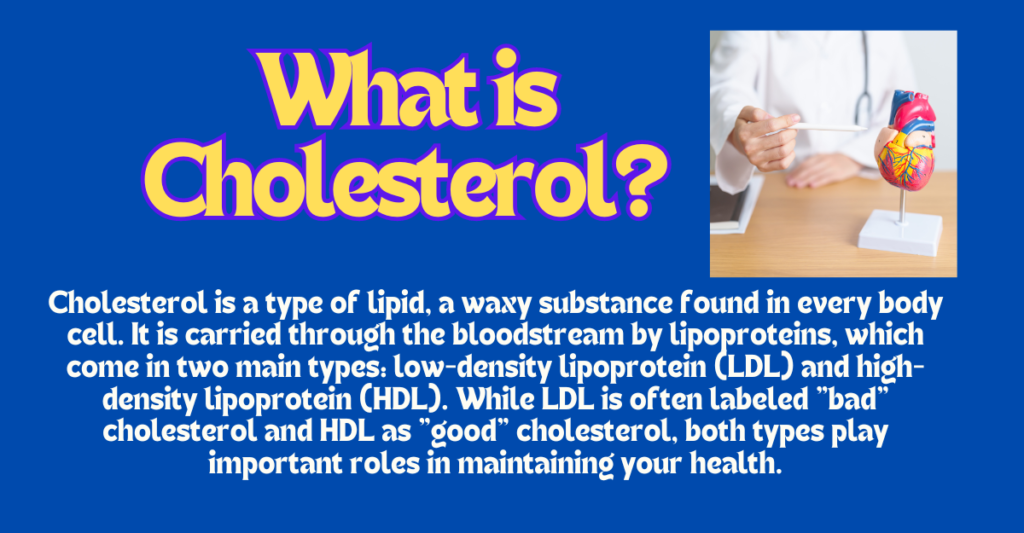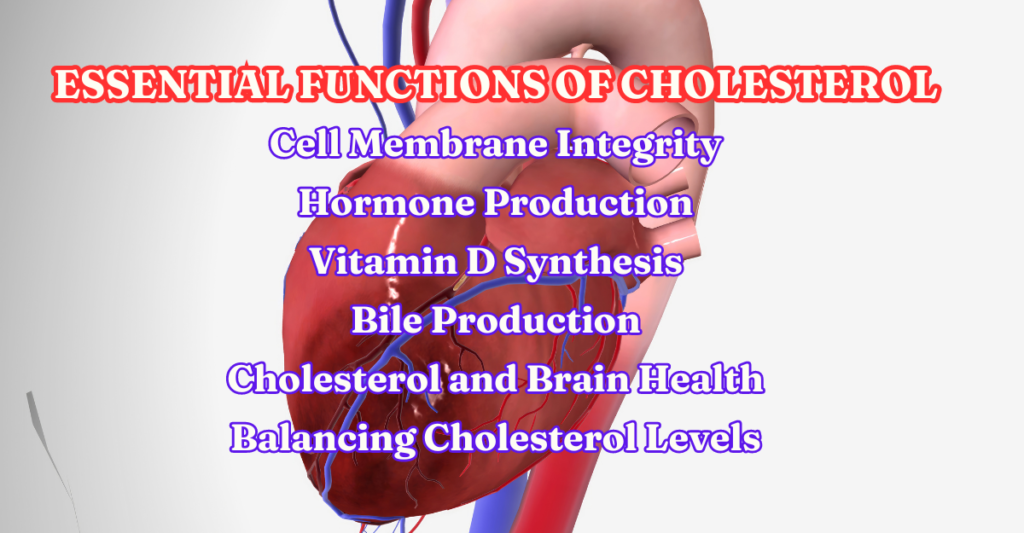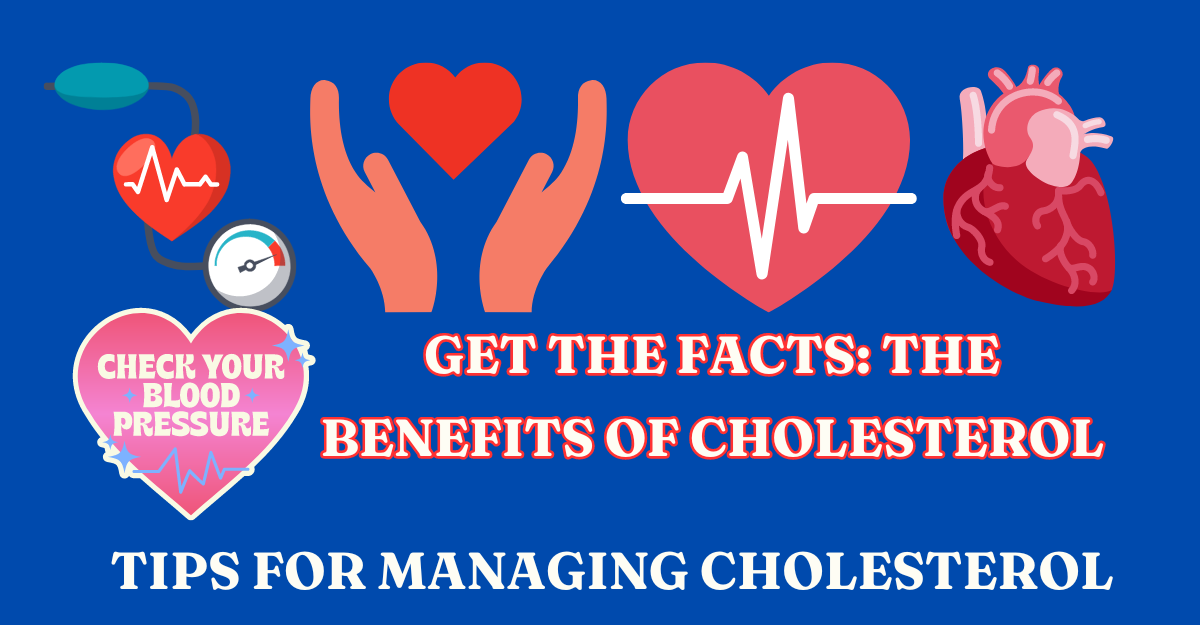Get the Facts: The Benefits of Cholesterol
When most people hear the word “cholesterol,” they immediately think of heart disease and other health problems. However, cholesterol is a crucial component of our bodies for various biological functions. Let’s dive into the facts and explore the benefits of cholesterol, dispelling some common myths along the way.

What is Cholesterol?
Cholesterol is a type of lipid, a waxy substance found in every body cell. It is carried through the bloodstream by lipoproteins, which come in two main types: low-density lipoprotein (LDL) and high-density lipoprotein (HDL). While LDL is often labeled “bad” cholesterol and HDL as “good” cholesterol, both types play important roles in maintaining your health.

Essential Functions of Cholesterol
Cell Membrane Integrity
- Cholesterol is a fundamental building block of cell membranes. It provides structural integrity and fluidity, allowing cells to function properly and maintain their shape.
Hormone Production
- Cholesterol is a precursor for the synthesis of essential hormones, including estrogen, testosterone, and cortisol. These hormones regulate various bodily functions, from reproductive health to stress response.
Vitamin D Synthesis
- When your skin is exposed to sunlight, cholesterol is converted into vitamin D. This vitamin is crucial for bone health, immune function, and overall well-being.
Bile Production
- Cholesterol is used by the liver to produce bile, a digestive fluid that helps break down fats in the food you eat. Bile is essential for the absorption of fat-soluble vitamins (A, D, E, and K).
Cholesterol and Brain Health
Cholesterol is vital for brain function. It is a major component of myelin, the protective sheath that covers nerve fibers and facilitates the transmission of electrical signals. Adequate cholesterol levels support cognitive function and memory, and low levels have been linked to an increased risk of neurological disorders.
Balancing Cholesterol Levels
While cholesterol is essential, balance is key. Excessive LDL cholesterol can lead to plaque buildup in the arteries, increasing the risk of heart disease and stroke. It’s important to maintain healthy cholesterol levels through a balanced diet, regular exercise, and, if necessary, medication prescribed by your doctor.
Tips for Managing Cholesterol
Healthy Diet
- Include a variety of fruits, vegetables, whole grains, lean proteins, and healthy fats in your diet. Foods rich in omega-3 fatty acids, such as fish, flaxseeds, and walnuts, can help raise HDL cholesterol and lower LDL cholesterol.
Regular Exercise
- Physical activity can improve your cholesterol levels by increasing HDL cholesterol and decreasing LDL cholesterol. Aim for at least 150 minutes of moderate-intensity exercise per week.
Avoid Trans Fats
- Trans fats, found in many processed foods, can raise LDL cholesterol and lower HDL cholesterol. Check food labels and avoid products with partially hydrogenated oils.
Quit Smoking
- Smoking lowers HDL cholesterol and damages blood vessels, increasing the risk of heart disease. Quitting smoking can improve your cholesterol levels and overall heart health.
Moderate Alcohol Consumption
- While moderate alcohol consumption has been linked to higher HDL cholesterol levels, excessive drinking can lead to numerous health problems. If you drink alcohol, do so in moderation.
Conclusion
Cholesterol is often misunderstood and unfairly vilified. It plays a crucial role in maintaining cell structure, hormone production, vitamin D synthesis, and brain health. By understanding its benefits and managing your cholesterol levels through a healthy lifestyle, you can support your overall well-being and reduce the risk of heart disease. Remember, balance is key, and it’s essential to maintain a healthy relationship with cholesterol for optimal health.
https://optimalhealth24.com/foods-fruits-vegetables-and-oils-for-brain-liver-and-kidney-health/


